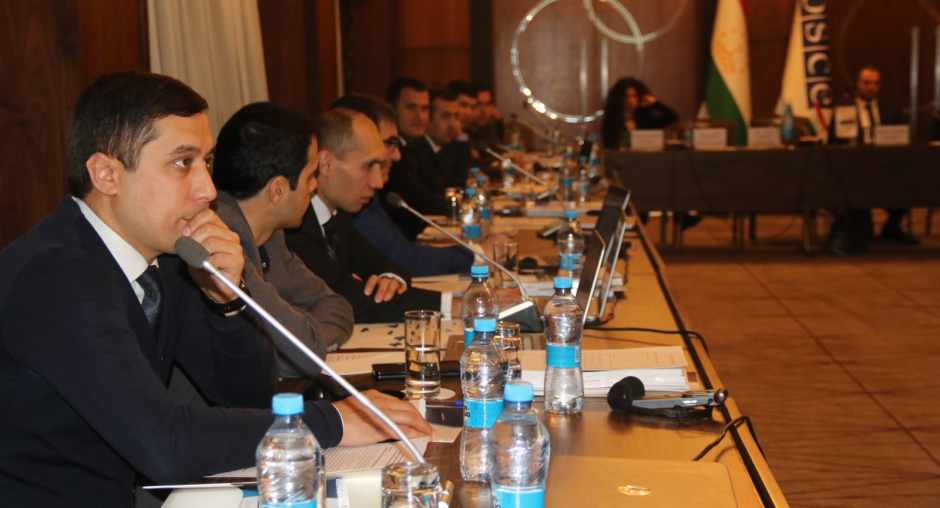Developing Tajikistan’s capacities for requesting electronic evidence across borders

From 29 November to 2 December, the OSCE’s Transnational Threats Department, the OSCE Programme Office in Dushanbe and the UNDOC Terrorism Prevention Branch organized a training course in Tajikistan on requesting electronic evidence from service providers based in foreign jurisdictions. The course, based on the United Nations Practical Guide on Requesting Electronic Evidence across Borders, was developed by the UNODC, INTERPOL, and OSCE, with the financial support of the European Union.
The training course brought together 19 representatives from Tajikistan’s law enforcement, judicial agencies and other relevant ministries. The modules of the course covered available instruments for requesting electronic evidence abroad, including requests for preservation, voluntary disclosure, emergency disclosure, and mutual legal assistance, as well as channels for police-to-police co-operation. The course also underlined the importance of respecting human rights and fundamental freedoms in all these procedures.
The three-day course was followed by a one-day national roundtable in which the participants and experts discussed the necessary changes for improving existing procedures for requesting electronic evidence from overseas service providers. The training concluded with a set of recommendations for establishing effective national mechanisms.
“In the context of the rapid development of the Internet and digitalization in the Republic of Tajikistan, it is very important for the law enforcement agencies to be able to effectively investigate cyber-enabled crimes through engaging with the private companies and network providers in new and innovative manners,” said Jukka Tuononen, Head of the Politico-Military Department of the OSCE Programme Office in Dushanbe. “The OSCE continues promoting public-private partnerships between State authorities and the private sector to facilitate requesting electronic evidence across borders in full respect of human rights and fundamental freedoms.”
The course was supported through the extra-budgetary project “Capacity Building on Combating Cybercrime in Central Asia”, which is funded by the United States of America, Germany, and the Republic of Korea.
